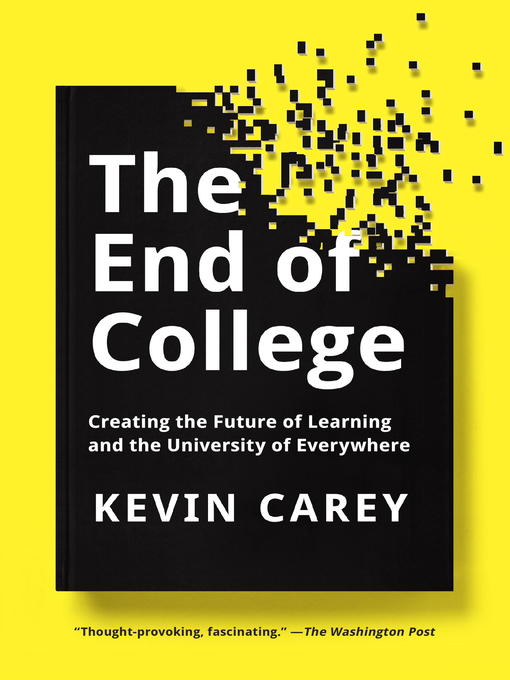
Over the span of just nine months in 2011 and 2012, the world’s most famous universities and high-powered technology entrepreneurs began a race to revolutionize higher education. College courses that had been kept for centuries from all but an elite few were released to millions of students throughout the world—for free.
Exploding college prices and a flagging global economy, combined with the derring-do of a few intrepid innovators, have created a dynamic climate for a total rethinking of an industry that has remained virtually unchanged for a hundred years. In The End of College, Kevin Carey, an education researcher and writer, draws on years of in-depth reporting and cutting-edge research to paint a vivid and surprising portrait of the future of education. Carey explains how two trends—the skyrocketing cost of college and the revolution in information technology—are converging in ways that will radically alter the college experience, upend the traditional meritocracy, and emancipate hundreds of millions of people around the world.
Insightful, innovative, and accessible, The End of College is a must-read, and an important contribution to the developing conversation about education in this country.
-
Creators
-
Publisher
-
Release date
March 3, 2015 -
Formats
-
Kindle Book
-
OverDrive Read
- ISBN: 9781101634592
-
EPUB ebook
- ISBN: 9781101634592
- File size: 705 KB
-
-
Accessibility
-
Languages
- English
-
Reviews

Loading
Formats
- Kindle Book
- OverDrive Read
- EPUB ebook
subjects
Languages
- English
Why is availability limited?
×Availability can change throughout the month based on the library's budget. You can still place a hold on the title, and your hold will be automatically filled as soon as the title is available again.
The Kindle Book format for this title is not supported on:
×Read-along ebook
×The OverDrive Read format of this ebook has professional narration that plays while you read in your browser. Learn more here.